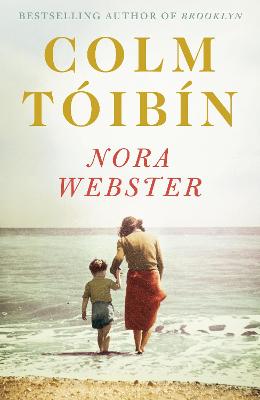
britmlewis
Written on Jan 26, 2015
I've enjoyed Colm Toibin's novels in the past and was excited to read Nora Webster, especially given all the hype and praise surrounding it. However, at the end of the book I found myself both disappointed and a bit confused. The story focuses on Nora Webster, a mother of four who is widowed in her forties and has to discover life without her (seemingly perfect) husband Maurice. So much of the story mentions how great Maurice was, how everyone loved him, how missed he was, and yet I rarely felt that Nora actually missed him for these reasons and instead missed not having to work outside the home. While it certainly seems she was not encouraged to discover herself while he was married and thus her journey of self-exploration makes sense, it still seemed forced. I just never felt attached to Nora and her singing, her newfound love of music, or her singing ability that has seemed to lay dormant for 40+ years.
I also would've loved for the novel to dig deeper into her children's reactions and difficulties in the wake of losing their father. We so rarely see her older daughters reacting at all, except when they're surprised to learn she sold their vacation home. Nora seems particularly detached from them and is happy to allow that to continue so as not to annoy them, thus making those relationships weak and altogether uninteresting. We're given a lot of description about her sons' difficulties, but we're rarely given a close look at how this effects their behavior, other than Donal having a stutter and Connor being very observant.
Despite this lack of depth, it certainly wasn't the worst book I've ever read. I continue to enjoy Colm's exploration of families marked by tragedy in Ireland, and the quiet and difficult ways the family members come to terms with their lives. He writes without fanfare and instead let's the story and the characters move the reader rather than grandiose writing. The flap of the book claims this to be a masterpiece in character study and, while I disagree with that, it is definitely full of interesting characters and a story that will make the reader pause and consider the universal experience of how families move on after the death of a loved one.
I also would've loved for the novel to dig deeper into her children's reactions and difficulties in the wake of losing their father. We so rarely see her older daughters reacting at all, except when they're surprised to learn she sold their vacation home. Nora seems particularly detached from them and is happy to allow that to continue so as not to annoy them, thus making those relationships weak and altogether uninteresting. We're given a lot of description about her sons' difficulties, but we're rarely given a close look at how this effects their behavior, other than Donal having a stutter and Connor being very observant.
Despite this lack of depth, it certainly wasn't the worst book I've ever read. I continue to enjoy Colm's exploration of families marked by tragedy in Ireland, and the quiet and difficult ways the family members come to terms with their lives. He writes without fanfare and instead let's the story and the characters move the reader rather than grandiose writing. The flap of the book claims this to be a masterpiece in character study and, while I disagree with that, it is definitely full of interesting characters and a story that will make the reader pause and consider the universal experience of how families move on after the death of a loved one.

